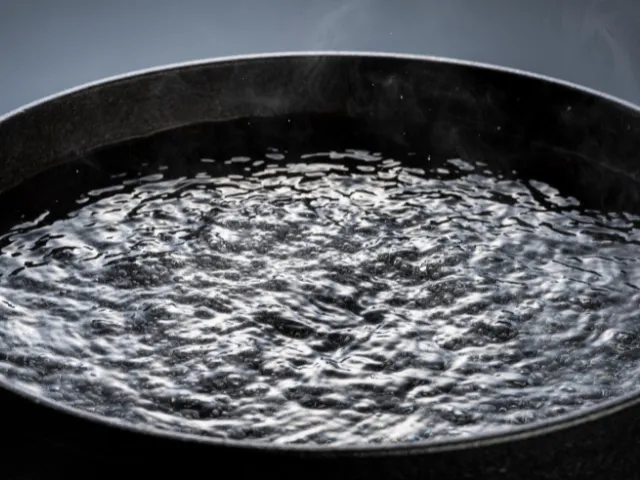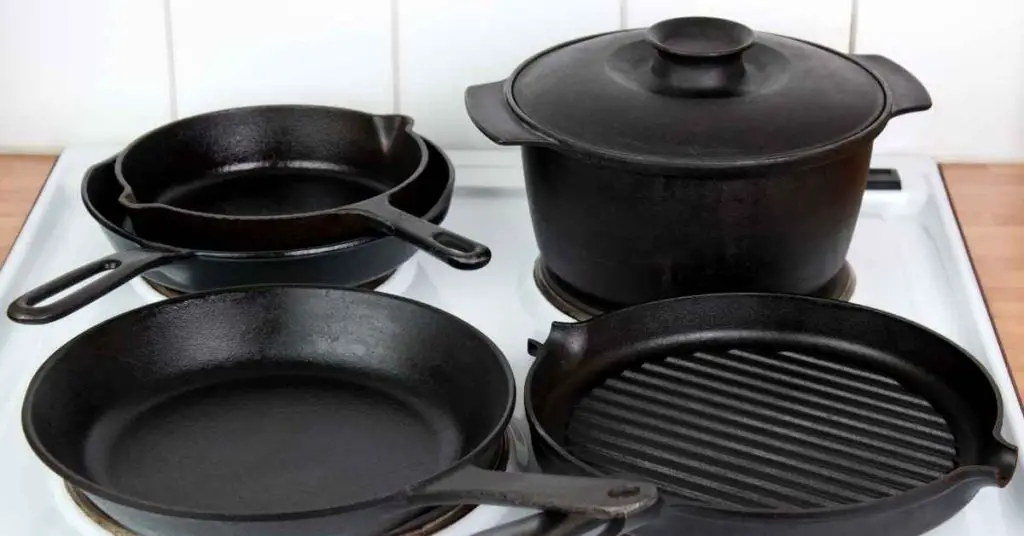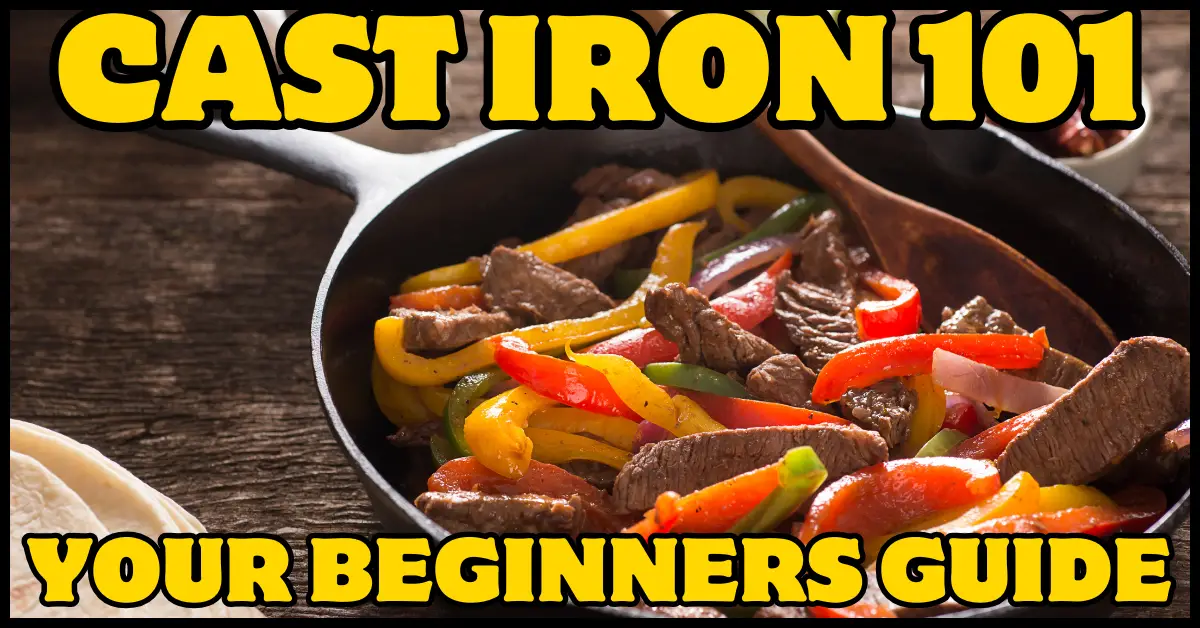Can You Boil Water in Cast Iron? Let’s Find Out!

Introduction:
Table of Contents
Can you boil water in a
Boiling water in cast iron is a myth. It’s like never using soap. Years ago, Most soaps were made with lye. Lye would strip the seasoning off of your cast iron, but in today’s society, most soap and detergents do not have lye, or if they do, it’s very little. So it’s not harmful to your seasoning if you don’t let it soak for long periods.
My experience has been making chili or a pot of beans and ham without a problem. Both of these have either water or stewed tomatoes, which is another thing that people say you shouldn’t cook in cast iron. but like I said, I cook these all the time without any problem.
Sauteing Onions In Cast Iron
Can you sauté onions in cast iron? First, think about the times you’ve sautéed onions in cast iron. It’s something many of us have done. And guess what? Onions have water in them. So, can we straight-up boil water if we can sauté onions that contain water?
And how about tomatoes? Tomatoes are juicy and filled with acidic liquid. Can we cook them or tomato sauce in cast iron? I’ve heard some folks warn against it, while others, like me, do it all the time. In fact, I cook chili with tomatoes in my cast iron regularly. With no problem at all.
The Concern with Boiling Water in Cast Iron
But here’s where the plot thickens. Some people believe boiling water in cast iron is risky. Why? Because iron can rust, and water causes rust, so this is why they say you should never boil water in cast iron. If you do, The seasoning could start to break down, releasing some of its oils. The result? Your food might take on a dark, almost blackish color.
This happens because the combination of high heat and certain acidic foods and or water, in this case, can cause the cast iron’s protective layer of seasoning to release its oils.
But what about using hot water to clean your cast iron? While we don’t always need boiling water to wash our cast iron, hot water can help steam off food particles and leftovers from the pan.
The Controversy Around Tomatoes and Cast Iron
Another myth is that you cannot cook tomatoes in cast iron. This is simply not true. The reason why people say you can’t cook tomatoes or you should not cook tomatoes in cast iron is that tomatoes are acidic.
Other things that could weaken or damage your seasoning would be vinegar or citrus fruits like lemon and orange, but knowing these items can weaken or damage your seasoning should not prevent you from cooking with them. You can cook with these items in your
The Ideal Solution: Enamel Cast Iron
Can you boil water in enameled cast iron? One solution for those still unsure whether to boil water and cast iron is to use enamel cast iron. With its protective coating, you don’t have to worry about any problems. Personally, I don’t own any enameled cast iron pieces. Still, they’re an excellent choice for those who frequently cook with acidic ingredients or want extra peace of mind.
Precautions and Care
If you’re using regular black iron (without enamel) and decide to boil water or cook acidic foods, remember that this can weaken your pan’s seasoning. But here’s the good news: it’s an easy fix! Once you’re done cooking and cleaning your pan, simply apply a coat of maintenance oil. This will help keep the seasoning strong and the pan in top shape.
In Conclusion
So, can you boil water in cast iron? The answer is yes, you can boil water in cast iron! You can cook with tomatoes, tomato sauce, sauté onions, and even deglaze with vinegar or wine. Just remember to give your pan a little extra care afterward. After all, it’s your cast iron. Use it how you like, but keep it happy and healthy with some occasional TLC.



